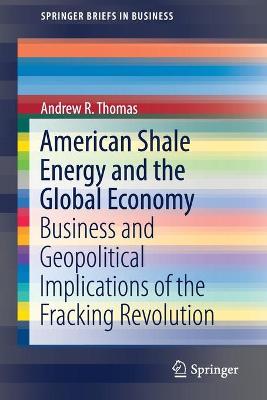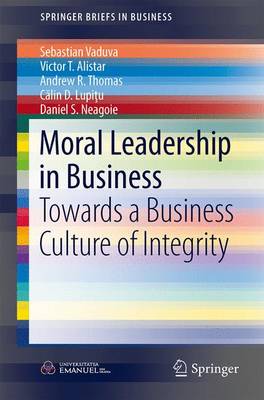SpringerBriefs in Business
3 total works
Integrity in the Business Panorama
by Sebastian Vaduva, Victor T. Alistar, Andrew R. Thomas, Ioan S. Fotea, Calin D. Lupitu, Daniel S. Neagoie, and Adrian F. Cioara
This volume explores the value of business integrity and ethics as a "best practice" model in business strategy. The authors define business integrity, explore areas in which integrity is often absent or discredited, and provide a framework and tools to help build better business ethics and corporate social responsibility. The volume aims to reveal that beyond the immediate economic effect, corruption can ruin entire countries by destabilizing key economic and political players, warping their vision for state development.
Against the backdrop of global financial and ethical crises, the authors argue that integrity in business is a key component for long-term success. Integrity includes the ability to be consistent with one's moral values and principles and places society's wishes at the center of business decision-making. The cornerstone upon which a culture of integrity is built within a certain business is the ethics code. It explicitly states the values and principles to which a company adheres. The continuous promotion, support and communication of the ethics code stipulations provide the basis upon which integrity in business is built.
Featuring case studies from countries such as Sweden, Great Britain and France and companies such Starbucks, Nike, PSEG, and Anglo-American PLC, this volume provides a comprehensive study of business integrity and social responsibility that will be of interest to students, scholars, professionals and policy-makers from around the world.
The discovery of new sources of domestic natural gas in recent years - coupled with innovations that facilitated their extraction - has altered the global landscape. However, the vast majority of the information out there for business students, faculty, and practitioners about the natural gas revolution is focused on the impact of “longer and lower” energy prices; and, secondarily, opportunities within the domestic energy sector. Each of these is crucial for business people to understand, however, the natural gas revolution is about much more. Companies of all sizes, whether they see it or not, are having new opportunities open up for their products and services. Further, the globalization of shale energy will have far reaching influence beyond simply economic factors. Geopolitical considerations and the re-structuring of international relations around shale energy will impact supply chains in a myriad of ways. This book aims to examine these opportunities.
Featuring case studies from contemporary companies, this book will be of interest to students, academics, researchers, professionals and policy makers who are seeking to understand the business and global implications of the shale energy revolution.
Moral Leadership in Business
by Sebastian Vaduva, Victor T. Alistar, Andrew R. Thomas, Calin D. Lupitu, and Daniel S. Neagoie
In the current global economy, we have never before been more tightly-knit and never before has it been easier to distribute goods as well as ideologies. However, in the global marketplace we areonly as good as our word, or our reputation, proves to be. Integrity studies by Transparency International show a correlation between corruption and national threat and lists corruption among the most harmful factors to impact local and regional economies. Therefore, successful businesses cannot afford to simply remain materially successful; they have to consider their community impact and become moral leaders before they can be world leaders in their respective field.
Featuring innovative tools, recommendations, case studies and checklists, this brief will be of interest to students, academics, scholars, practitioners and policymakers alike in the fields of leadership, corporate governance, business ethics and corporate social responsibility.


